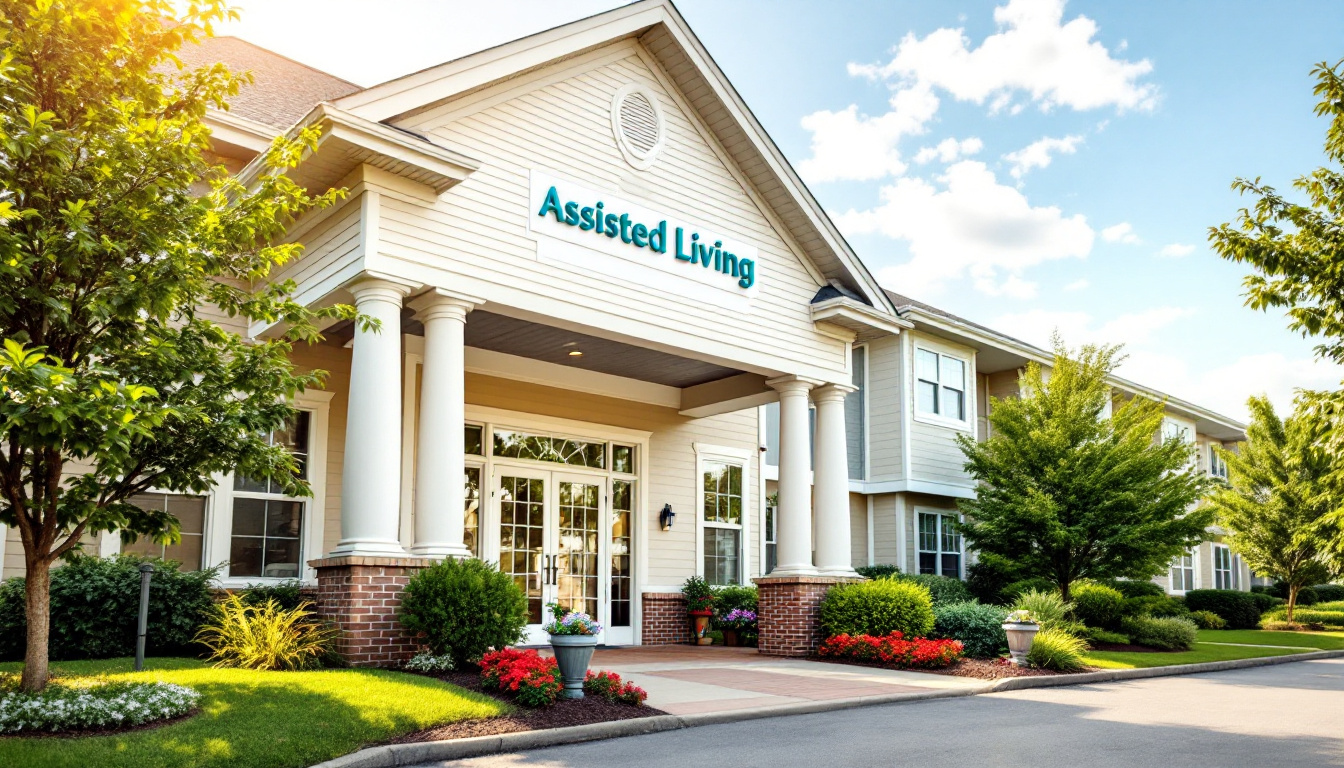How Hospice Helps Patients Maintain Dignity in Their Final Days
Ensuring Respect and Compassion in End-of-Life Care

Understanding the Core of Dignified Hospice Support
Hospice care plays a vital role in helping patients maintain their dignity during their final days. Rooted in principles of respect, compassion, and holistic support, hospice services focus on improving quality of life by honoring individual wishes, managing symptoms, and providing emotional, social, and spiritual care. This article explores how hospice facilitates dignity preservation, the approaches used by caregivers, and the profound impact on patients and their families during this sensitive time.
Foundations and Principles of Dignified Hospice Care

What are the core principles and values guiding dignified hospice and end-of-life care?
Hospice care revolves around fundamental principles that emphasize respect, compassion, and personalization to uphold the dignity of patients nearing the end of life. Respect for patient autonomy is paramount, meaning individuals are empowered to make decisions about their care, including advanced directives and personal preferences.
Providing holistic care is vital. This approach addresses not only physical symptoms like pain and breathlessness but also emotional, spiritual, and cultural needs. Recognizing each person as a unique individual helps preserve their sense of self-worth and identity.
Ethical principles form the backbone of caring practices. Beneficence guides caregivers to act in the patient’s best interest, aiming to relieve suffering. Nonmaleficence ensures that interventions do not cause harm. Fidelity emphasizes trustworthiness and keeping promises, while justice promotes fairness and equitable access to quality care.
Effective communication is a core element. Healthcare professionals engage in honest, compassionate dialogues, respecting privacy and providing clear, truthful information. Spiritual support and cultural sensitivity help patients find comfort and meaning in their final days.
Personalized care plans are tailored to each patient’s values and wishes, fostering a sense of control. Interdisciplinary teams—comprising doctors, nurses, social workers, chaplains, and counselors—collaborate to provide comprehensive support.
Ongoing education and professional development for care providers further strengthen adherence to these principles, ensuring that dignity remains central in all aspects of end-of-life care. Overall, these practices create a respectful, equitable environment that honors the inherent worth of every person during their final stages of life.
Supporting Dignity Through Compassionate Care and Communication

Impact of respectful communication and privacy measures
Respectful communication is fundamental in preserving patient dignity at the end of life. Speak directly to the patient, using respectful language, and listen attentively to their concerns and wishes. Protecting physical privacy by safeguarding personal space and information reassures patients of their worth and helps maintain their sense of control. Creating an environment of empathy and confidentiality reinforces trust and demonstrates that the patient is valued as a person.
Use of tools like the Patient Dignity Question and dignity therapy
Tools such as the Patient Dignity Question (PDQ)—"What do I need to know about you as a person to take the best care of you that I can?"—serve to personalize care. This question encourages patients to share vital aspects of their identity, experiences, and values, enabling caregivers to tailor their approach to respect individual needs.
Dignity therapy complements this by having patients reflect on their life, sharing stories, messages for loved ones, and their legacies. This therapeutic intervention helps patients reaffirm their self-worth, clarify their life meaning, and leave a sense of closure. Such approaches foster emotional and spiritual well-being, supporting dignity even in the face of illness.
The importance of personalized, respectful care practices
Personalized care respects each patient’s unique history, preferences, and spiritual beliefs. Practical aspects include assisting with personal grooming, respecting cultural rituals, protecting privacy during examinations, and creating a peaceful environment. Recognizing the patient as a whole person—beyond their illness—enables caregivers to support psychological, social, and spiritual needs, which are vital for maintaining dignity.
In hospice settings, fostering dignity also means involving family members, encouraging open conversations about end-of-life wishes, and ensuring the patient feels heard and respected. When care is tailored to individual needs and delivered with compassion, patients experience a sense of control, worth, and peace during their final days.
The Role of Emotional, Social, and Spiritual Support

How does holistic support reinforce dignity?
Holistic support, encompassing emotional, social, and spiritual care, is vital in maintaining a person's dignity at the end of life. By addressing all aspects of a patient's well-being, healthcare providers affirm the individual’s worth, identity, and life experiences. Emotional support ensures patients feel heard and valued, often through compassionate communication and active listening.
Social support involves fostering meaningful connections with loved ones and community, helping patients feel loved and not isolated. Spiritual care respects diverse beliefs and practices, offering comfort, purpose, and a sense of transcendence during difficult times.
Together, these supports help patients retain a sense of control and self-worth, making them feel respected and valued as persons, not just as medical cases. They create a nurturing environment where dignity can flourish despite declining health.
Why is spiritual care important and how does it help reconcile relationships?
Spiritual care plays a crucial role by helping patients find inner peace, hope, and purpose, which can be especially comforting at life's end. It involves respecting individual beliefs, providing access to spiritual resources, and facilitating rituals or practices that align with the patient’s faith.
Addressing spiritual needs also enables patients to reconcile estranged relationships, express forgiveness, and leave meaningful messages for loved ones. This process fosters reconciliation and emotional catharsis, reinforcing the patient’s sense of integrity and dignity.
Spiritual support reassures patients that their values and beliefs are honored, contributing to a peaceful acceptance of death.
How does facilitating a sense of purpose, hope, and peace contribute to dignity?
Encouraging patients to find purpose and hope helps them navigate their final days with dignity. Care strategies like dignity therapy involve reflecting on life achievements and sharing personal legacies, reinforcing self-esteem and a sense of ongoing significance.
Creating opportunities for hope—whether in spiritual, personal, or relational terms—supports emotional resilience. Maintaining a peaceful environment and respecting patient wishes help foster a sense of tranquility.
When patients feel their lives have meaning and are surrounded by respect and compassion, it affirms their worth. This holistic approach not only alleviates suffering but also enriches their final experience, ensuring dignity remains at the core of end-of-life care.
Hospice Care’s Approach to Maintaining Control and Personal Wishes

How does hospice care ensure that patients maintain control over their end-of-life experience while preserving their dignity?
Hospice care emphasizes respecting and supporting a patient’s sense of control and personal wishes during their final days. It actively involves patients in decision-making about their treatment, daily routines, and end-of-life preferences. This approach helps reinforce their sense of agency, which is fundamental to maintaining dignity.
A core strategy is the use of advance directives and personalized care plans. These tools allow patients to outline their wishes clearly, including preferences for pain management, spiritual support, and specific treatments or interventions. By documenting these choices beforehand, patients retain influence over their care, even if they become less able to communicate later.
Effective communication plays a vital role. Hospice providers foster open, honest conversations, ensuring patients understand their options and feel empowered to express their values. These discussions are tailored to respect cultural, familial, and social contexts, adopting a relational approach to autonomy that recognizes the importance of social support and shared understanding.
Supporting informed decisions may sometimes mean navigating complex family dynamics or cultural beliefs. Hospice teams prioritize respecting the patient’s wishes, even when they differ from family preferences, because honoring individual choice is essential to preserving dignity.
Additionally, care is designed to help patients maintain their sense of 'being normal' and identity. This may involve allowing choices about daily activities, maintaining routines, or engaging in meaningful relationships and activities they cherish.
In sum, hospice care supports autonomy through personalized planning, open dialogue, and respect for individual preferences. This holistic approach not only promotes physical comfort but also safeguards emotional and psychological well-being, reinforcing the patient’s dignity until the end of life.
Additional insights on how hospice preserves patient control
| Strategy | Description | Impact on Dignity |
|---|---|---|
| Advance Directives | Legal documents that specify patient preferences for care | Ensures wishes are honored, reinforcing self-determination |
| Personalized Care Plans | Tailored treatment and activity plans | Supports individual identity and autonomy |
| Open Communication | Transparent, compassionate dialogues | Builds trust and understanding |
| Respect for Diverging Wishes | Honoring decisions even against family pressure | Upholds patient’s right to choose |
| Support for 'Being Normal' | Maintaining routines and decision-making capacity | Reinforces dignity and sense of control |
This combined approach in hospice care exemplifies how respecting personal agency and fostering honest communication are central to providing compassionate end-of-life experiences that honor each patient's dignity.
Specific Strategies to Preserve Dignity in the Final Days
What approaches does hospice care use to preserve patient dignity during the final days of life?
Hospice care plays a vital role in ensuring that patients experience dignity during their last days. It adopts a holistic approach that emphasizes respect, personalized support, and emotional well-being.
One of the fundamental strategies is fostering respectful communication. Healthcare providers speak directly to patients, using respectful language, listening attentively, and conveying empathy. This helps the patient feel valued, heard, and involved in decisions about their care. Respecting privacy by safeguarding personal information and providing private spaces is also crucial, allowing patients to maintain a sense of control over their environment.
Symptom management is another cornerstone of preserving dignity. Effective control of pain and physical discomfort enables patients to be comfortable, which is essential for upholding their self-worth and sense of control. Assistance with daily activities, such as personal grooming and mobility, helps patients maintain their independence and personal dignity.
Additionally, therapeutic interventions like dignity therapy, life review, and legacy projects support emotional and spiritual needs. Dignity therapy involves conversations where patients reflect on their lives, values, and messages for loved ones, often culminating in a document that affirms their identity and legacy. These activities foster a sense of meaning, continuity, and self-respect, reinforcing the worth of the individual.
Hospice care environments are designed to be peaceful and familiar, promoting comfort and social support. The overall approach integrates compassionate communication, physical care, and meaningful therapeutic activities to create a respectful and nurturing atmosphere. This comprehensive strategy ensures that patients’ intrinsic worth and dignity are upheld, affirming the value of their lives even as they approach the end.
Preserving Dignity After Death: Respectful Post-Mortem Care

How can steps be taken to maintain a patient's dignity immediately following death?
Maintaining dignity after a patient’s passing begins with respectful handling of the body, ensuring that care staff observe privacy and cultural or religious practices important to the individual. Gently washing, grooming, and positioning the body with care not only preserves the patient’s appearance but also affirms their inherent worth as a person.
Effective communication with the family is vital; offering emotional support, listening to their needs, and involving them in decisions reflects compassionate, person-centered care. Providing space for the family to conduct rituals or say goodbye according to their beliefs respects their cultural values and supports emotional well-being.
Supporting the family through grief, while respecting their cultural and spiritual needs, helps uphold social dignity and fosters a sense of closure. The overall approach should be personalized, emphasizing the individual's dignity and honoring their life, which continues to be valued even after death.
Ultimately, practicing sensitive procedures, engaging with families compassionately, and paying close attention to cultural and spiritual considerations ensures that dignity is preserved at this important final stage of care.
Upholding Dignity as a Fundamental Right in End-of-Life Care
Hospice care exemplifies the profound importance of respecting human dignity at life's end. Through personalized, compassionate practices, emotional and spiritual support, and honoring individual wishes, hospice professionals foster an environment where patients can experience their final days with respect, comfort, and meaning. Recognizing that dignity is a vital component of quality end-of-life care underscores the need for ongoing education, ethical practice, and holistic support. When dignity is preserved, both patients and families find comfort and closure, affirming that end-of-life care is truly a reflection of human compassion.
References
- The Importance of Patient Dignity in Care at the End of Life - PMC
- Seven Ways to Maintain Patient Dignity at End of Life
- How Hospice Care Offers Remarkable Comfort and Dignity for ...
- Dignity and Dignity Therapy in End-of-Life Care
- Hospice care offers dignity as a component of end-of-life options
- How Is Dignity Maintained In End-Of-Life Care? - Seasons Hospice OK
- Ways Hospice Ensures Great Last Days for Terminally-Ill Patients
- Dignity enhanced through faith & family support in palliative care





































































































